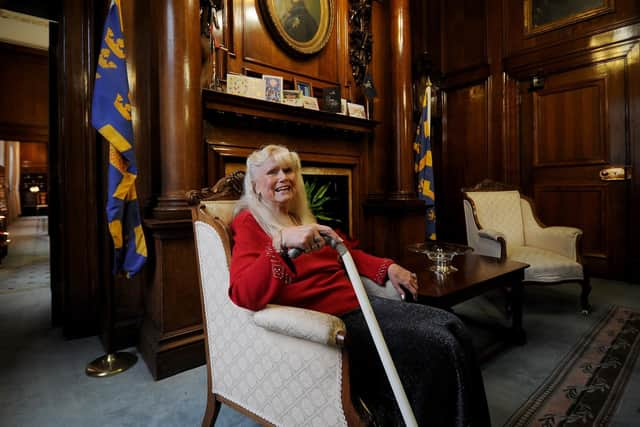Last of Hull's 'headscarf revolutionaries' and Triple Trawler Tragedy campaigner Yvonne Blenkinsop dies
Yvonne Blenkinsop's son has confirmed her death to BBC Humberside.
She was one of the 'headscarf revolutionaries' who ruffled feathers in 1960s Hull in the wake of the Triple Trawler Tragedy, when three local vessels were lost in Icelandic and Norwegian waters and 58 men died.
Advertisement
Hide AdAdvertisement
Hide AdThey were warned they were interfering in 'men's business' and Mrs Blenkinsop was even punched in the face by a man in a restaurant.


In 2018 she became only the third woman in more than 130 years to be awarded the Freedom of the City.
Born into Hull's fishing community in 1938, she was only 16 when her father Eddie Horsfield died aged 48 after suffering a heart attack on board the trawler Loch Melfort.
She was the eldest of six siblings and her widowed mother was still suffering trauma from living through the Hull Blitz.
Advertisement
Hide AdAdvertisement
Hide AdWhen the St Romanus, Kingston Peridot and the Ross Cleveland sank within weeks of each other in 1968, she was a 30-year-old cabaret singer with three children of her own.
She stayed up through the night writing down 27 ideas for improving safety on the North Sea trawlers, and she became part of the Hessle Road Women's Committee alongside fish filleter Lillian Bilocca, captain's wife Mary Denness and Christine Jensen. Their meeting at Victoria Hall was attended by more than 300 women concerned about the industry's safety record.
She recalled: “It was quite obvious that I had been at the meeting – we had John Prescott there. They didn’t want women messing in their business – they should be at home, looking after the kids, cooking, cleaning.”
They took direct action, storming the offices of the trawler companies and even blockading the harbour to demand that all boats had a radio operator on board.
Advertisement
Hide AdAdvertisement
Hide AdBut the women’s persistence paid off, and with massive media coverage and union support, they took their campaign to Westminster, to meet Minister of State at the Board of Trade, JPW Mallalieu.
“I said: ‘We have these safety measures – are we going to get them. I’m not going to leave until I know. I called him petal accidentally.
He just smiled at me. I said: ‘I really need to know’ He said: ‘Yes, my dear, you have got them.”
One of the key demands - the 'mother ship' carrying medical support for the fleet - was delivered within weeks. “We had it in no time at all - I was flabbergasted we got it so quickly.”
Advertisement
Hide AdAdvertisement
Hide AdBut she says with the exception of one Hull company Marrs, trawler owners were not prepared to invest in safety and new ships. “They just wanted the money coming in,” she said. “Thank God for Grimsby.”
She thinks it “disgraceful” there is no longer a fishing industry operating out of Hull. “I think the owners pulled up the gangplank when they had to fork out for safety”, adding poignantly, “And all those men that died and ships that have gone down.”
In 2015 the story was given to a much wider audience by Brian W Lavery’s The Headscarf Revolutionaries. Plays, poetry, music, radio and TV documentaries followed.
Hull man Ian Cuthbert is currently campaigning for a statue of the four women to be erected in Queen's Gardens.
